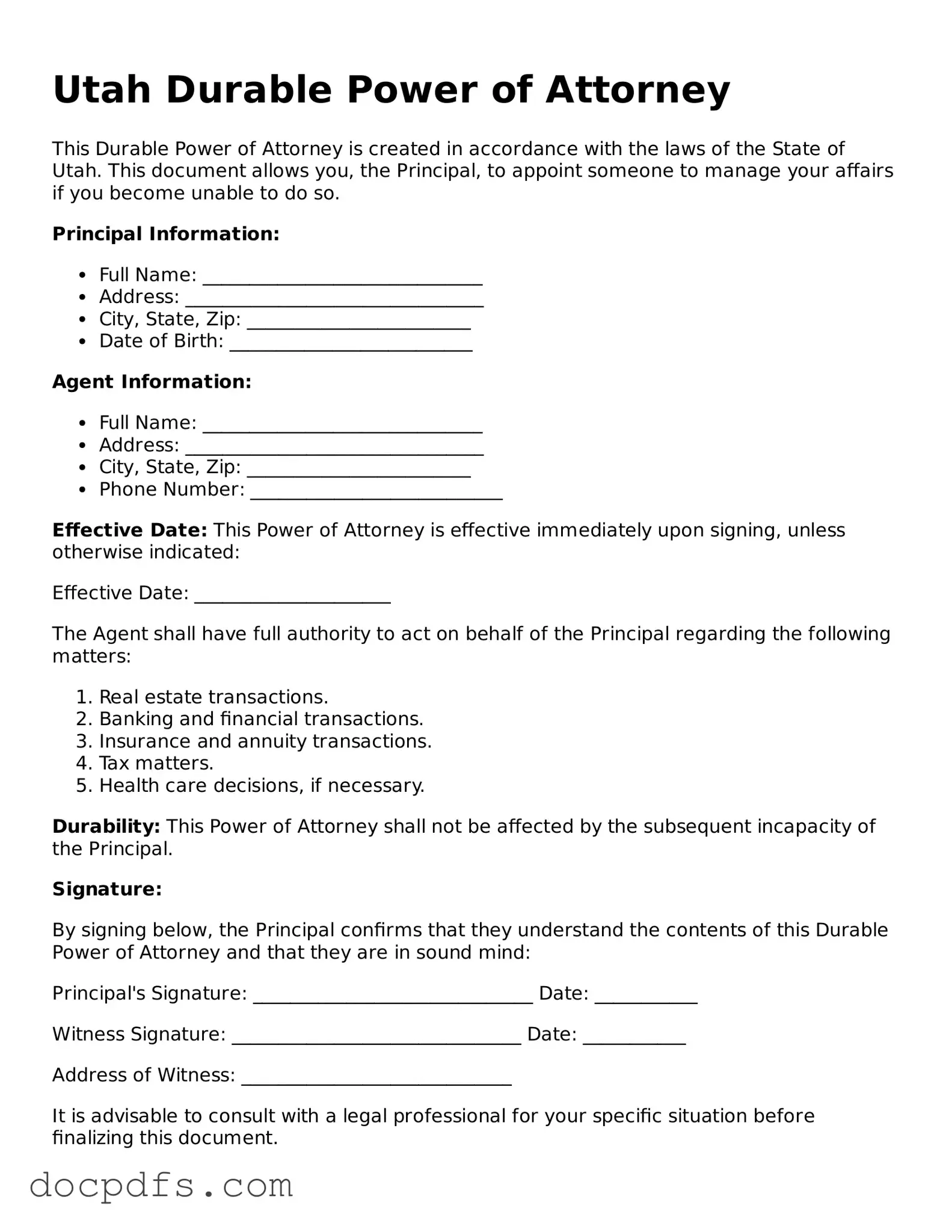What is a Durable Power of Attorney in Utah?
A Durable Power of Attorney (DPOA) is a legal document that allows an individual, known as the principal, to appoint another person, referred to as the agent or attorney-in-fact, to make decisions on their behalf. This authority remains in effect even if the principal becomes incapacitated, ensuring that their affairs can be managed without interruption.
Why should I consider creating a Durable Power of Attorney?
Creating a Durable Power of Attorney is beneficial for several reasons:
-
It allows for the management of financial and legal matters when the principal is unable to do so.
-
It provides peace of mind, knowing that someone trusted will make decisions aligned with the principal’s wishes.
-
It can help avoid court intervention, which may be necessary if the principal becomes incapacitated without a DPOA.
Who can be appointed as an agent in a Durable Power of Attorney?
In Utah, the principal can appoint any competent adult as their agent. This can include family members, friends, or professionals. It is essential to choose someone trustworthy, as the agent will have significant authority over the principal's financial and legal matters.
What powers can be granted to the agent?
The principal can grant a wide range of powers to the agent, including but not limited to:
-
Managing bank accounts and financial transactions.
-
Handling real estate transactions.
-
Making decisions regarding investments.
-
Filing taxes and managing tax-related matters.
-
Making healthcare decisions, if specified in the document.
Does a Durable Power of Attorney need to be notarized?
Yes, in Utah, a Durable Power of Attorney must be signed in the presence of a notary public to be considered valid. This step helps to ensure that the document is executed properly and can be recognized by financial institutions and other entities.
Can I revoke a Durable Power of Attorney?
Yes, the principal has the right to revoke a Durable Power of Attorney at any time, as long as they are competent. To revoke the DPOA, the principal should create a written revocation document and notify the agent and any relevant institutions of the change.
What happens if I do not have a Durable Power of Attorney?
If an individual becomes incapacitated without a Durable Power of Attorney in place, family members may need to go through a court process to obtain guardianship or conservatorship. This process can be lengthy, costly, and may not reflect the individual's preferences.
How can I ensure my Durable Power of Attorney reflects my wishes?
To ensure that a Durable Power of Attorney accurately reflects the principal's wishes, it is advisable to:
-
Clearly outline the powers granted to the agent.
-
Discuss the principal's wishes with the chosen agent to ensure understanding.
-
Review the document periodically and update it as necessary, especially after significant life events.
Durable Power of Attorney forms can be obtained from various sources, including:
-
Legal stationery stores.
-
Online legal service providers.
-
Local attorneys who specialize in estate planning.
It is advisable to consult with a legal professional to ensure that the form meets all legal requirements and adequately addresses the principal's needs.

